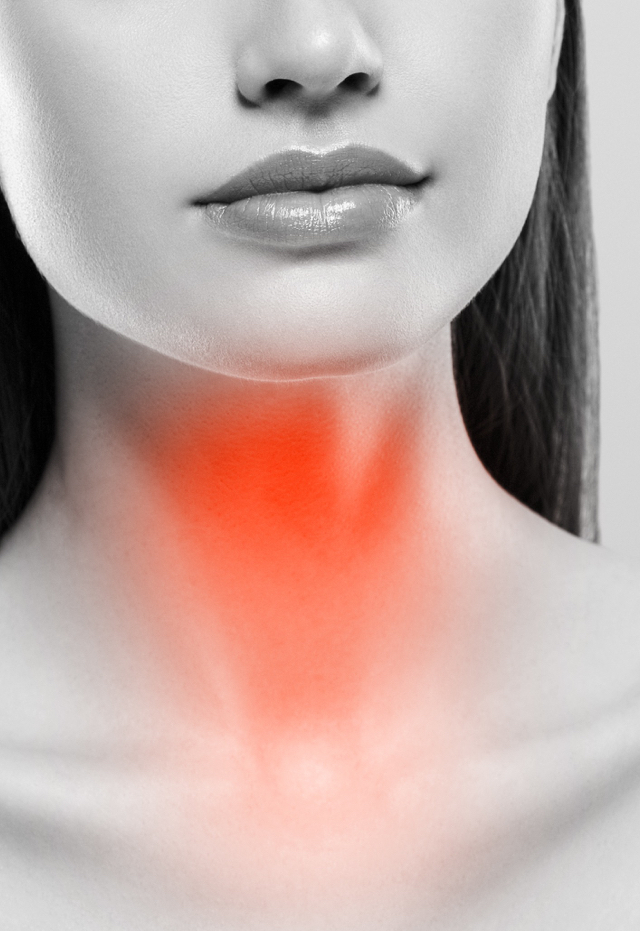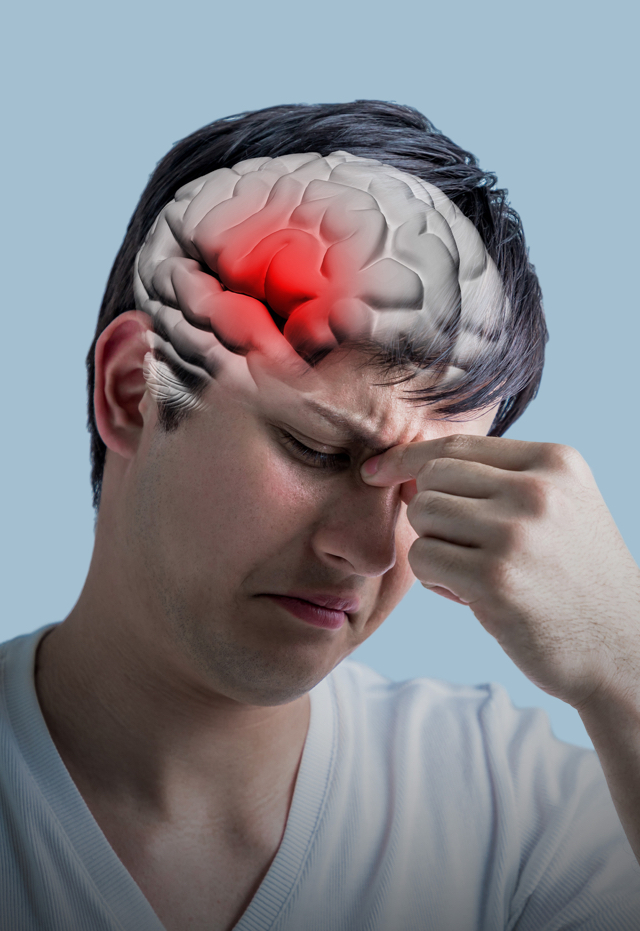Small but Vital. Thyroid is the “master controller” of metabolism, and plays a key role in our health and wellbeing. Thyroid disorders tend to run in families, therefore it is usually hereditary.

Our foundation of achieving optimal health is centered on hormonal balance and cellular regeneration. The basis of thyroid balance is essential in any holistic and functional health program. Thyroid is like the Grand Central Railway station, regulating most of our bodily functions and thus affecting it at a cellular level. If it is not balanced, our quality of life deteriorates, as we struggle to get through life every day. As we age, the body’s cellular energy lessens. Sedentary lifestyle, stress, poor diet and environmental toxins escalate the decline even further. Thyroid dysfunction can negatively affect the neurological, heart, skeletal, muscles, kidneys, and hormone-producing tissues in our bodies.
Thyroid disorders affect millions of people worldwide and in some countries almost 70% of people remain undiagnosed. Thyroid disorders are 10 times more common in women, by the age of 60, 80% of women will develop hypothyroidism, the most common type of thyroid disorder.
The 'Core Hormones'
Creating the equilibrium for optimum health and vitality
To balance the Thyroid, think of yourself as a conductor, orchestrating the Core Hormones into a symphony, addressing the Thyroid Hormones, Iodine, Adrenals, the Stress Modulators and Sleep. The Thyroflex ‘Core Hormone’ system was developed to address and balance the following:
- THYROID – Hashimoto’s, Graves
- IODINE / IODIDE – Breast health/Ovaries/Uterus/Prostate
- ADRENALS (CORTISOL) – Probiotics, RT3
- D3 / K2, B’s and MAGNESIUM
- DHEA and GABA
- PREGNENOLONE
- BLOOD SUGAR / LIPIDS
- MELATONIN and SEROTONIN
- TRYPTOPHAN
- COQ10 – Palpitations / Tachycardia
- ACTH
THYROID
Thyroid disorders tend to run in families, therefore it is usually hereditary.

The thyroid gland produces hormones that regulate the body’s metabolic rate as well as heart and digestive function, muscle control, brain development and bone maintenance. Its correct functioning depends on having a good supply of iodine. The release of thyroid hormones from the thyroid gland is controlled by Thyrotrophin-Releasing Hormones (TRH) from the hypothalamus in the brain and by Thyroid Stimulating Hormone (TSH) produced by the pituitary gland. This forms part of a feedback loop called the hypothalamic–pituitary–thyroid axis.
The thyroid is able to produce the active hormone by utilising iodine — an essential nutrient — from food, but as todays soils are depleted of Iodine, the amount of iodine available in our diets is limited, hence the increase in goiters. Iodine is then combined with the amino acid tyrosine, to produce T4 and T3. Of the thyroid hormone produced by a healthy thyroid gland, about 80 percent is T4 and 20 percent is T3. T3 is the biologically active hormone that is used by the cells, and is several times stronger than T4. The body converts the inactive T4 to active FT3 in the thyroid, or other organs, including the hypothalamus, a part of your brain. The body cannot use TRH, TSH, T4, or T3, it can only use FT3 and a little FT4. Once it gets to the cells, the role of thyroid hormones is to deliver oxygen and energy, and drive metabolism. That means, thyroid hormone controls the process by which oxygen and calories are converted to the energy your cells and organs need. Specifically:
- Thyroid hormones help cells convert oxygen and calories into energy.
- Thyroid hormones help you properly process carbohydrates
- Thyroid hormones help in the proper functioning of your muscles
- Thyroid hormones help in the proper functioning of the immune system
- Thyroid hormones help proper with sexual development and functioning
- Thyroid hormones help your heart pump properly and effectively
- Thyroid hormones help you breathe normally
- Thyroid hormones help your nervous system function properly
- Thyroid hormones help your intestinal system properly digest and eliminate food
- Thyroid hormones help strengthen your hair, nails and skin
- Thyroid hormones help your brain function properly
- Thyroid hormones help with normal bone growth
As you can see, the thyroid has an impact on every aspect of your health. Like the thermostat in your house set to a particular temperature, like the heat or air conditioning that comes on to heat or cool, your body is set to maintain a certain level of circulating thyroid hormone. It is when disease or damage to the thyroid gland takes place, or the feedback process malfunctions, that we see thyroid problems developing.
Source : Mary J. Shomon, Sick To Death
The Long-Term Consequences
Most people suffer from the symptoms of misdiagnosed, undiagnosed, or under treated thyroid disorders, most of their lives. Thyroid disorders tend to run in families, therefore it is usually hereditary. If we do not get hypothyroidism addressed what can we expect?
Neurological Symptoms
- Headache
- Paresthesias (Pins & Needles)
- Cerebellar ataxia (incoordination)
- Deafness (nerve or conduction)
- Vertigo or Tinnitus (ringing in the ears)
- Giddiness
- Gradual Cognitive decline
- The Cerebellum (balance)
Psychiatric Syndromes
- Depression and Bipolar Disorders
- Schizoid, Schizophrenia
- Affective & organic psychosis
- Marked slowing of all mental processes
- Progressive loss of initiative and interest
- Memory difficulties
- Thinking is easily muddled
- General intellectual deterioration
- Marked anxiety and tension
- Emotional liability
- Irritability, impatience and distractible over activity
- Exaggerated sensitivity to noise
Skeletal System
- Arthralgia’s (joint stiffness)
- Joint effusions & pseudo gout
- Carpal Tunnel Syndrome
Cognitive Defects
- Calculation
- Memory
- Reduced attention span
- Sleep apnea
- Declining cognitive function with aging
- Declining working memory, information processing speed, and long-term memory
- Cognitive Impairment
Double Alzheimer's Risk
- Arthritis and inflammatory diseases
- Neurological (Parkinson’s like diseases)
- and many, many more.
Other Risks
- Essential Hypertension
- Difficulty swallowing
- Polymyalgia and all of the myalgia’s
- High or low blood pressure
- High cholesterol & other blood fats
- Vascular (blood vessel) disease
- Diabetes
- Afib
- Thyroid storm
- Sudden death
Did You Know?
Thyroid DisordersIf Thyroid disorder is left untreated, the chances of it escalating into autoimmune diseases are greatly increased, in fact into over 80- autoimmune disorders compounding one into the other. The conventional screening by standard blood test is not an accurate tool to establish a baseline thyroid function. It can be costly and often times misleading, especially with sub-clinical hypothyroidism, leaving the patient’s quality of life at risk.
Subclinical Hypothyroidism:
‘Sub-clinical’ means that the patient has all the symptoms, is struggling to get through life, and feels tired and lethargic, and is susceptible to many other thyroid disorders that they need not be exposed to. Thyroid disorders tend to run in families, therefore it is usually hereditary. It is estimated that 80% of the population has a thyroid disorder.
Why? Even though the patients are symptomatic, we now rely on blood tests, that are not an accurate way of determining thyroid disorders, and are out dated. Blood, is an invalid test for the Thyroid hormones, and we totally ignore what and how the patient is feeling (Symptoms). For instance, the blood tests appear to be normal, but the patient is feeling depressed and they are given an antidepressant (masking the underlying cause of hypothyroidism).
This Can Lead To A Cascade of Autoimmune Responses:
- Inflammatory bowel disease ( IBD )
- Crohn’s disease and ulcerative colitis
- Myasthenia gravis (MG)
- Primary biliary cirrhosis – the immune system slowly destroys the liver’s bile ducts
- Psoriasis
- Rheumatoid arthritis (RA)
- Scleroderma – a disease causing abnormal growth of connective tissue in the skin and blood vessels .
- Systemic lupus erythematosus – a disease that can damage the joints, skin, kidneys, heart, lungs and other parts of the body
- Vitiligo
- Antiphospholipid antibody syndrome (aPL) (arterial thrombosis)
- Autoimmune hepatitis
- Celiac disease
- Guillain-Barre syndrome (sudden muscle weakness)
- Hemolytic anemia
- Idiopathic thrombocytopenic purpura (ITP) (Blood spots)









